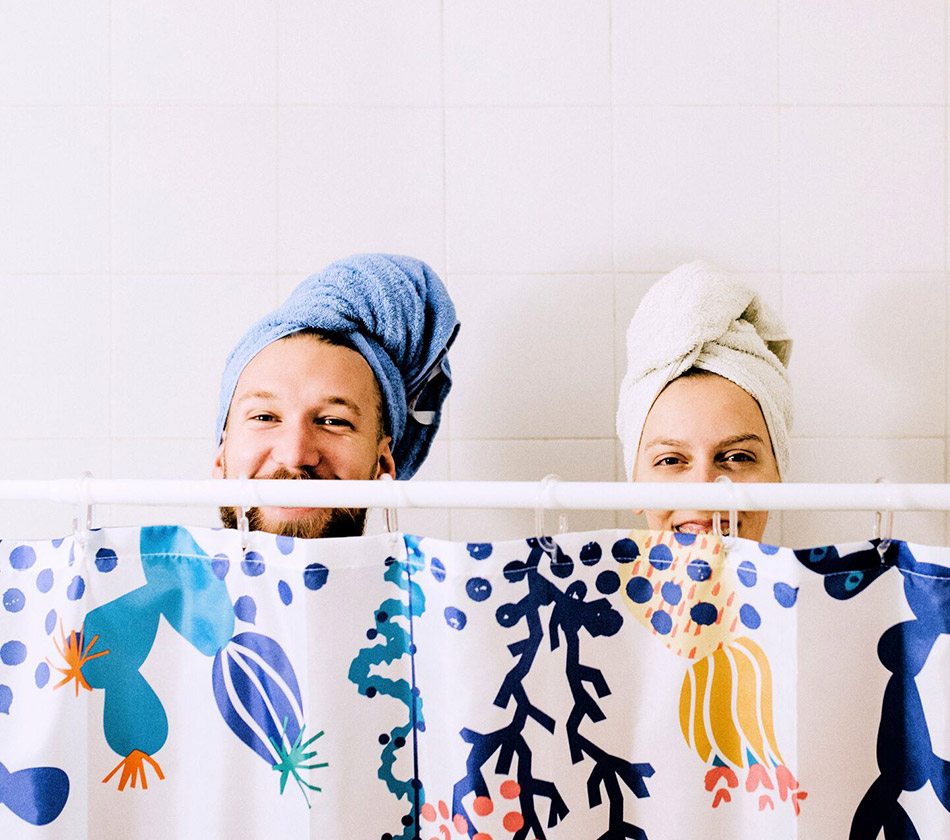Talking to teens about debt.
4 tips for helping teens avoid the debt trap As teenagers start making their ...

If you have some less than perfect energy habits, then you’ve felt the shiver up your spine that comes with a hefty power bill.
You’re not alone, new research commissioned by ING Australia shows 97% of Aussies admit to having some poor energy (and saving) habits.
If you think that’s a high number, wait till you learn they’re costing the nation $15.1 billion a year! That’s more dollars than there are stars in the Milky Way. These poor energy habits are costing each Aussie adult an estimated $756 per year¹.
“It’s really encouraging that nine in ten (93%) Aussies are actively looking for ways to cut back on their energy bills, and over half (55%) are looking for ways to cut back a lot.”
And there’s good reason, you could be saving an estimated $648.15 each year. That’s a decent weekend away, right there.
So, what are the biggest, baddest energy habits Aussies have fessed up to taking part in? In a typical week, 81% of Aussies say they leave electronics on at the switch, and 62% leave the TV/laptop on standby overnight, costing an estimated $20.31 and $28.69 respectively, per person, each year.
Additional research findings include:
So, there it is folks. You might have to expend a little more mental energy while you’re creating those new habits, but you’ll thank yourself for it when you get that new bill. Celebration suggestion: an air-fried meal by candlelight.
Footnotes:
¹Based on all identified energy-wasting behaviours as outlined in notes to editors
²Based on the average cycle time of 45 minutes, according to Whirlpool
Research was undertaken by YouGov in June 2023 (total sample size was 1,025) and July 2023 (total sample size 1,001). The figures are representative of Australians aged 18 years and older.
All costs are estimated based on the average number of hours a week those surveyed said they partake in identified energy-wasting habits and average hourly cost according to the latest AusGrid Energy use guide, unless otherwise stated.
Identified energy-wasting habits, and estimated cost per person, per year, include:
Orange Everyday utility bill offer
1% cashback on eligible utility bill payments, up to $100 per Orange Everyday, per financial year. An eligible utility bill payment is a payment made by BPAY, direct debit (BSB and account number), or PayTo from your Orange Everyday account for a water, gas or electricity bill from an agreed supplier for the Australian residential address of the account holder.
ING Pocket Perks
ING Pocket Perks is a rewards program for Orange Everyday Debit Card holders and Orange One Card holders aged 18 years and older. Each debit or credit card you hold will automatically be enrolled into ING Pocket Perks. ING Pocket Perks offers are subject to specific eligibility requirements set by the merchant providing the offer, and these details will be displayed in the ‘Offers’ section of the ING app. Cashback is usually credited within 7 days of a qualifying purchase being fully processed. ING Pocket Perks offers are also subject to the Orange Everyday Terms & Conditions or Orange One Terms & Conditions that correlate to the card you hold. Offer information displayed in the ING App is provided by participating merchants. ING makes no representations or warranties of any kind, express or implied, about the completeness, accuracy, reliability, suitability or availability with respect to the offer information. Offers are for a limited time only and subject to change.
If you activate your Orange Everyday debit card or Orange One credit card between 21 July 2025 and 31 March 2026, there may be a delay in its automatic enrolment into ING Pocket Perks. You can manually enrol the card yourself by logging into mobile banking and navigating to your card, then selecting “ING Pocket Perks”. Once you do this, your card will be enrolled with immediate effect.
Cashback payments may have tax implications, we recommend you seek tax advice from an independent tax advisor.
For full terms and conditions, see the Orange Everyday Terms and Conditions and Fees and Limits Schedule, Orange Everyday Target Determination and the agreed utility supplier list at ing.com.au.
The information is current as at publication. Any advice on this website does not take into account your objectives, financial situation or needs and you should consider whether it is appropriate for you. Deposit products, savings products, credit card and home loan products are issued by ING, a business name of ING Bank (Australia) Limited ABN 24 000 893 292, AFSL and Australian Credit Licence 229823. All applications for credit are subject to ING’s credit approval criteria, and fees and charges apply. You should consider the relevant Product Disclosure Statement, Terms and Conditions, Fees and Limits Schedule, Financial Services Guide, Key Facts Sheet and Credit Guide available at ing.com.au when deciding whether to acquire, or to continue to hold, a product. Before interacting with us via our social media platforms, please take a minute to familiarise yourself with our Social Media User Terms https://www.ing.com.au/pdf/Social_Media_User_Terms.pdf.